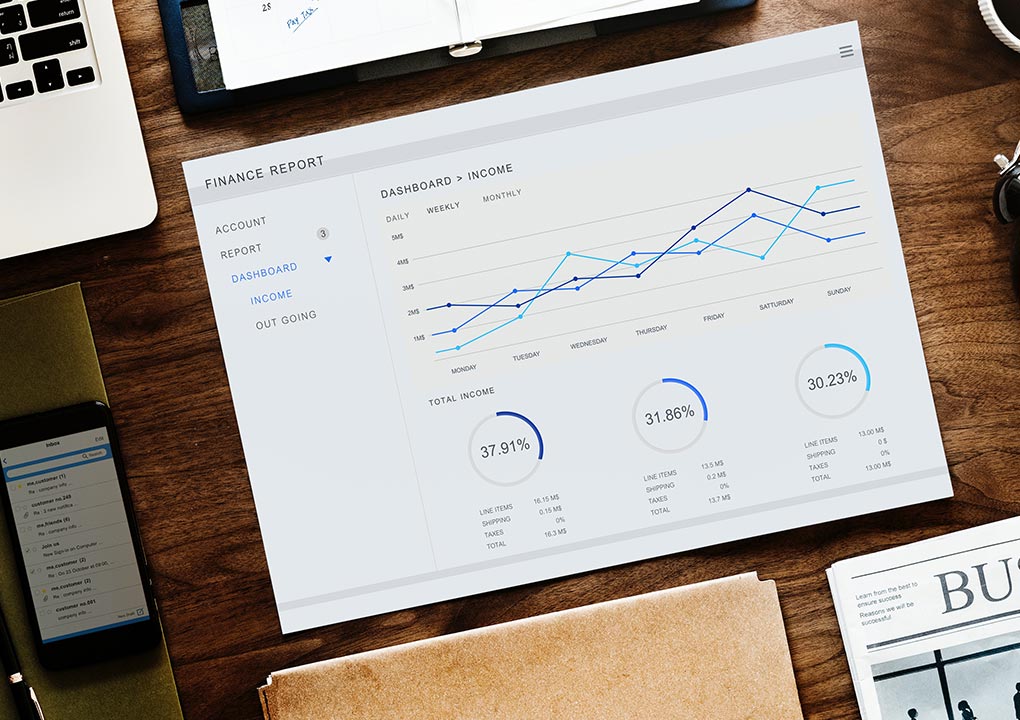Welcome to the second issue of Conversations at Tangible in 2021.
This year, Conversations@Tangible is looking at insights that change the way we do things. The Covid-19 pandemic has radically changed our daily routines, so in this edition, we want to focus on some of the insights and opportunities for SMEs arising from the pandemic.
Rather than highlight the on-line shopping stampede and remind you that Jeff Bezos added 90 billion to his bank balance last year, we want to focus on SMEs and how they’ve been negatively impacted by Covid-19. We will look at how SMEs could potentially rebound from the current pandemic. As Winston Churchill said, “never waste a good crisis”. After all, the entrepreneurs, start-ups and SMEs should have the drive and adaptability to grow the next green shoots of recovery.
Read More: Amazon profits increased nearly 200% since start of Covid-19 pandemic
To paint the picture, we’re categorising SMEs as: Independent firms employing less than 500 employees. The nature of SME businesses mean they have been more negatively affected by shutdowns, social distancing, and related measures than larger companies. Think about the industries which employ under 500 staff: retail, construction and engineering, hospitality and tourism, manufacturing, food and beverage, and the list goes on. Not a great picture, right?
We need to be realistic about just how damaging Covid-19 has been for the SMEs as they have been hit on both the supply and demand side of the economy. On the supply side, reduced resources in both labour and raw materials have disrupted production. On the demand side, consumption and spending have decreased. The result is a drastic fall in revenues and the inability to maintain liquidity. With such downturn and low economic activity, unemployment starts to rise – further lowering demand and spending. To add to the pain, SMEs typically have lower cash reserves than larger enterprises. In the US, less than 50% of SMEs have enough cash on hand to cover 15 days of expenses, and the ‘healthy’ SMEs have under two months of cash reserve to cover expenses. It’s clear that access to capital quickly becomes an issue.
Enough of the bad news, so what can SMEs learn from the past year of uncertainty? What follows are five opportunity areas that could help SMEs become leaner, greener fighting machines.
Read More: COVID-19’s Impacts on SMEs and
Policy Recommendations in Response
Opportunity 1: Digital transformation

Before Covid-19, the mention of the words “digital disruption” or “digital transformation” would be met with blank looks or vague interest. Many SMEs were unclear of what ‘big data’, ‘data analytics’ or ‘cloud computing’ were. According to one study of 575 SMEs in Singapore, 70% cent of SMEs had not leveraged data analytics and of these, about half have no intention to. This situation has changed rapidly since, with many SMEs looking out for the opportunities that digital solutions bring. In Singapore, of the 63,000 SMEs who have adopted digital solutions from SMEs Go Digital, 40,000 signed up in 2020 (offered by Infocomm Media Development Authority).
In a nutshell, data can help SMEs:
- Understand what makes customers tick. There are many Customer Relationship Management (CRM) tools designed specifically for SMEs (nutshell). Social media is also an obvious source of valuable data, allowing SMEs to identify customer behaviour, key markets and get customer feedback much easier and cheaper than before.
- Identify trends. Online services collate trends or answer specific questions for businesses, such as Trendera and Trend Hunter.
- Check out the competition. Google Trends offer insights on a brand’s popularity and social media analytics can illustrate popularity.
- Improving operations. Depending on your business, smart-sensors, GPS tracking and social media trends and predictions can give you the data to maximise production, increase sales and reduce unwanted stock. Let’s not forget all the cloud-based applications specifically designed for SMEs to manage a business’ finances (Xero), project processes, and communications (internal: slack and marketing: sendinblue)
- Recruit and manage talent. Combining your existing data with online services should allow SMEs to find the best candidates (Indeed),
identify the best recruitment channels and help to better employee engagement. (Qualtrics).
Read More: The new challenge facing SMEs is how to be deeply digital
Opportunity 2: Speed and innovation

Many SMEs suffer from slow processes and rigid hierarchies. The pandemic has encouraged rigid systems to be flexible, procedures skipped or accelerated, rules side-tracked and autonomous decision-making without formal approval. Remote work has empowered many employees, and counter to leaderships misconceptions, productivity often improves.
The Covid-19 response has proven that habits can shift and change much quicker than previously expected. Restaurants shift to delivery, schools shift to remote learning, work shifts to home. Remember how contentious ‘hot desking’ was? These shifts may not be permanent but hybrid solutions could be the future.
Opportunity 3: Better meetings

Apparently, employees spend 23 hours a week in meetings. Half of these are considered unproductive. We’re not saying that Zoom is the answer but no one seems to schedule meetings longer than an hour anymore and when the hour is up everyone’s gone. Post-crisis, can you imagine people going back to the inefficiencies of the old ways?
Opportunity 4: Re-evaluation

With so many routines being interrupted, SMEs have the opportunity to rethink, re-evaluate and make changes. This may be around its business model, personnel, marketing, product offer or environment. As with many aspects of life, we learn the most in difficult times, so SMEs should utilise this time for deep reflection.
Opportunity 5: A cleaner environment

The pandemic has dramatically reduced industrial activities. Factories, traffic and air travel have all slowed down. Covid-19 led to a significant reduction in greenhouse gas and other polluting emissions. Thinking of the other clichéd term, “build back better” seems appropriate as corporations and governments are making pledges to decarbonise and become carbon-neutral by specific dates. This represents a golden opportunity for entrepreneurs, start-ups, and SMEs to develop businesses for the ‘Green Decade’. Because 2020 is the decade that this has to happen.
Finally, let’s look at what policy makers have learnt. SMEs are a fundamental sector of the economy representing about 90% of businesses and, depending on your sources, between 50% – 70% of employment worldwide. Thus, SMEs are critical to public policy in most functioning economies and governments have been quick to respond with measures in place to help SMEs survive and thrive for the future.
Here are the 10 focus points in policy-making for SMEs
as a result of Covid 19:
- Ensure the rapid delivery of SME and entrepreneurship policy
support by simplifying access to support and ensuring effective
digital delivery systems - Prioritise viable companies and start-ups;
- Focus on start-up policies to enhance the potential
of innovative new ventures - Ensure that support measures are inclusive and reach vulnerable segments of the SME population
- Rethink policy approaches with regard to self-employed entrepreneurs
- Avoid SME solvency crisis by exploring non-debt support
- Prepare responsible exit strategies for emergency liquidity
support measures - Include a strong focus on the digitalisation of SMEs.
- Ensure effective and inclusive multi-level governance mechanisms
- Ensure SMEs and entrepreneurs, and the organisations that
represent them, are consulted and included in the government
decision-making processes
Covid-19 has affected everyone’s lives in vastly different ways but life goes on. We hope you can draw some optimism from this article and continue to support the little guys who are the lifeblood of every economy.
Read More: Small and medium enterprises (SMES) finance
Banner Image: Unsplash
Share this article


